Revisiting Queen Elizabeth II’s enthronement ahead of King Charles III’s coronation
Washington [US], May 6 (ANI): The wait is over. Britain is all decked up for King Charles III’s coronation. The event will mark King Charles III as the 40th monarch of the royal family.
The ritual of coronation at Westminster Abbey has been there for 900 years in royals after William the Conqueror the first King got crowned there.
Ahead of the ceremony, let’s revisit Queen Elizabeth’s enthronement ceremony back in 1953 based on a report by US-based media house, People.
Tale of becoming Queen Elizabeth
Elizabeth Alexandra Mary Windsor became Queen Elizabeth after the sudden demise of her father, King George VI, in February 1952. The coronation of the Queen was delayed for more than a year due to the unexpected nature of the death of the King. On June 2, 1953, the people of Britain witnessed the enthronement ceremony.
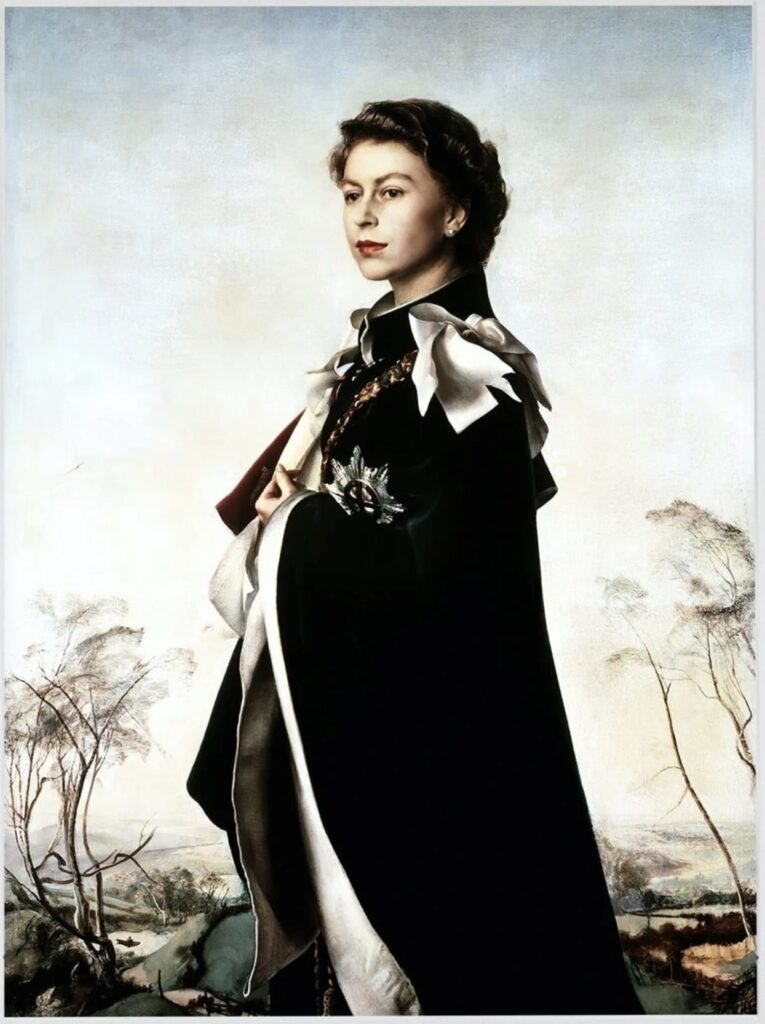
The crowd for Mega Event
The historical ceremony was attended by 8,000 guests in person. Other than that 27 million people witnessed the ceremony via live telecast on TV. Radio coverage was received by 11 million people for the landmark event.
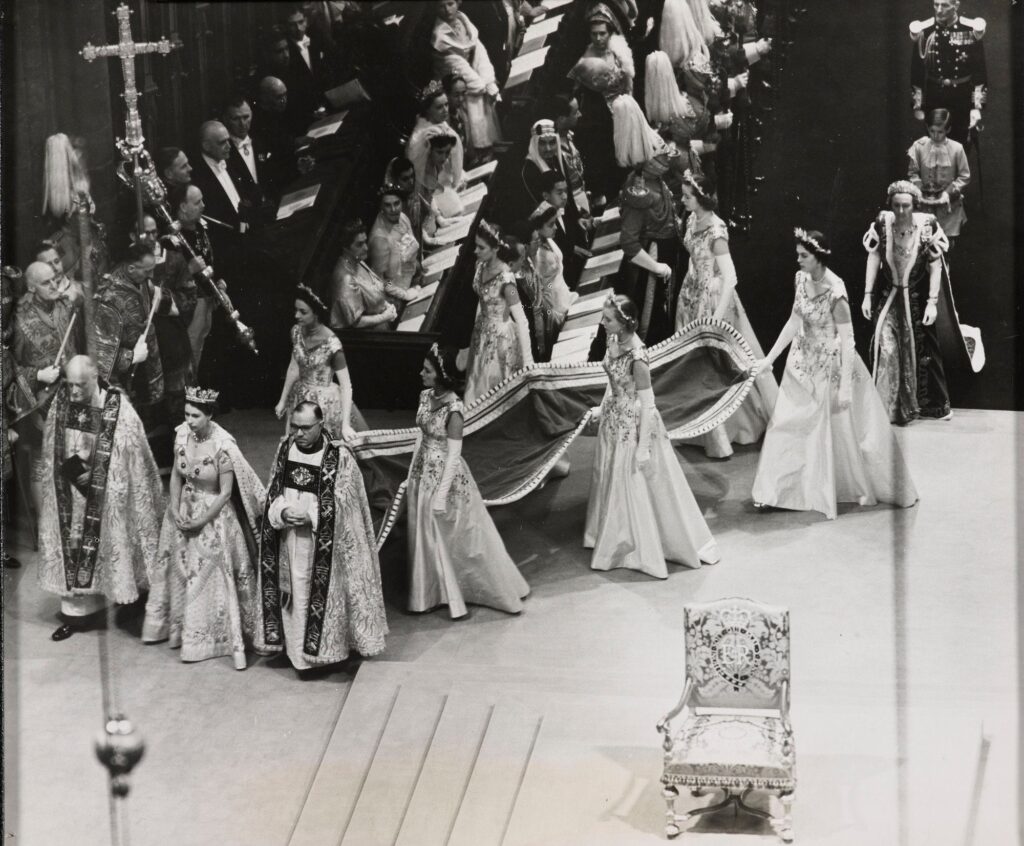
Historical Date and Venue
The sudden demise of King George shocked the world as no one was expecting that Elizabeth will ascend the throne only after 16 years of her father’s rule. The coronation was done post one year due to the unexpected nature and time needed to gear up for the ceremony. The date marked was June 2, 1953, at Westminster Abbey.
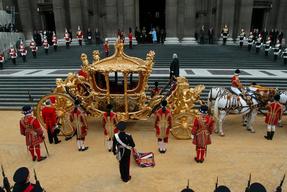
Carriage of the Queen
The arrival of the Queen has to be grand and the coronation committee led by Prince Philip arranged a beautiful golden horse-drawn carriage. Even when the barouche was grand, the comments about its comfort were negative. Queen herself said, “Horrible! It’s only sprung on a lever. Not very comfortable.”
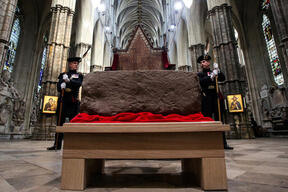
Coronation Gown of the Queen
Queen Elizabeth had a primary role in designing the gown. The white duchess satin dress was created by Sir Norman Hartnell (the same designer who made her 1947 wedding gown) and added numerous personal touches requested by the Queen herself like embroidered flowers that represented the United Kingdom as well as countries from throughout the Commonwealth, which at that time consisted Australia, New Zealand and Pakistan.
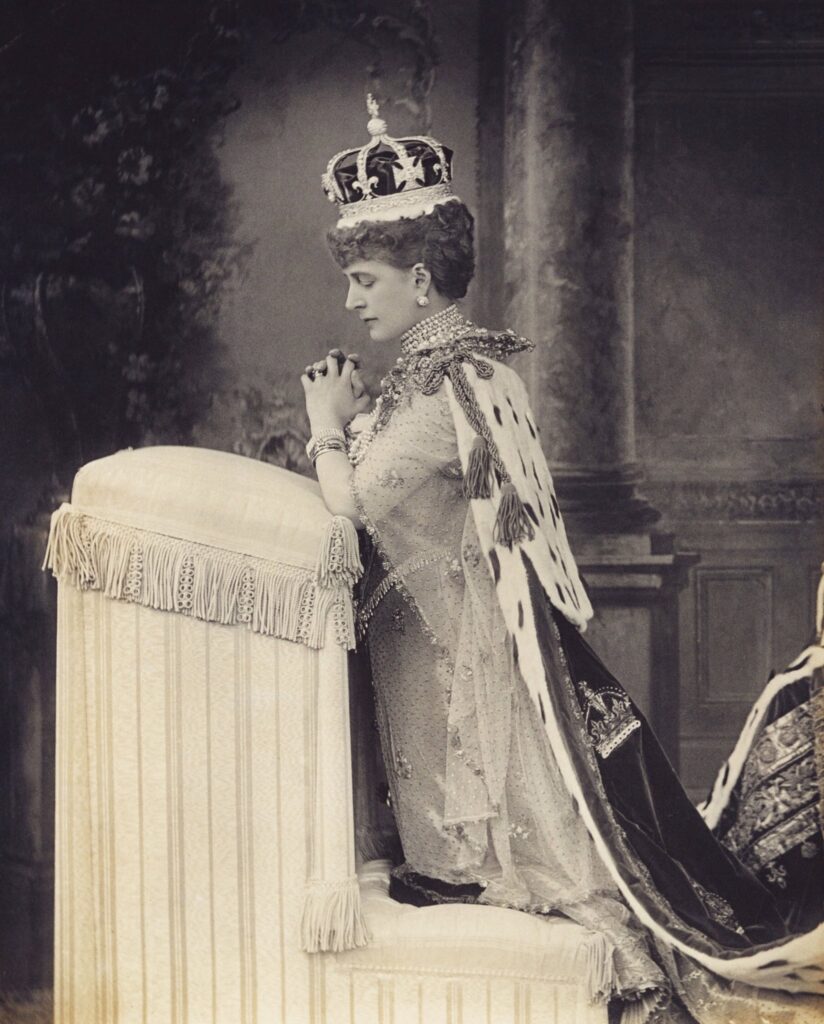
Norman also stitched a four-leaf shamrock for good luck on the left side of the skirt, placed precisely where Queen Elizabeth’s hand would fall during the ceremony. Additionally, the dress was threaded with leeks, the symbol of Wales.
Caroline de Gautaut, the deputy surveyor of the Queen’s Works of Art, told news agency People, “Back then, the Earl Marshall, who was in charge of everything to do with the protocols of the coronation, was adamant that the leek was the leading emblem of Wales. It does look very beautiful.”
The dress is tagged as one of the most important attire made in the 20th century according to Gautaut. “It’s probably one of the most important dresses made in the 20th century — certainly a great piece of British design. The combination of rich fabrics and beautiful embroideries was really Hartnell’s absolute signature and I think the greatest expression of all his career.” He added in a conversation with news agency, People.
Queen’s shoes
Queen Elizabeth’s shoes were also exceptional. The ornate shoes, designed by French shoemaker Roger Vivier and British shoemakers Delman Ltd, were said to have been inspired by the Chartres Cathedral in France. The royal heels were gilded in gold and covered in rubies, making them truly fit for royalty.
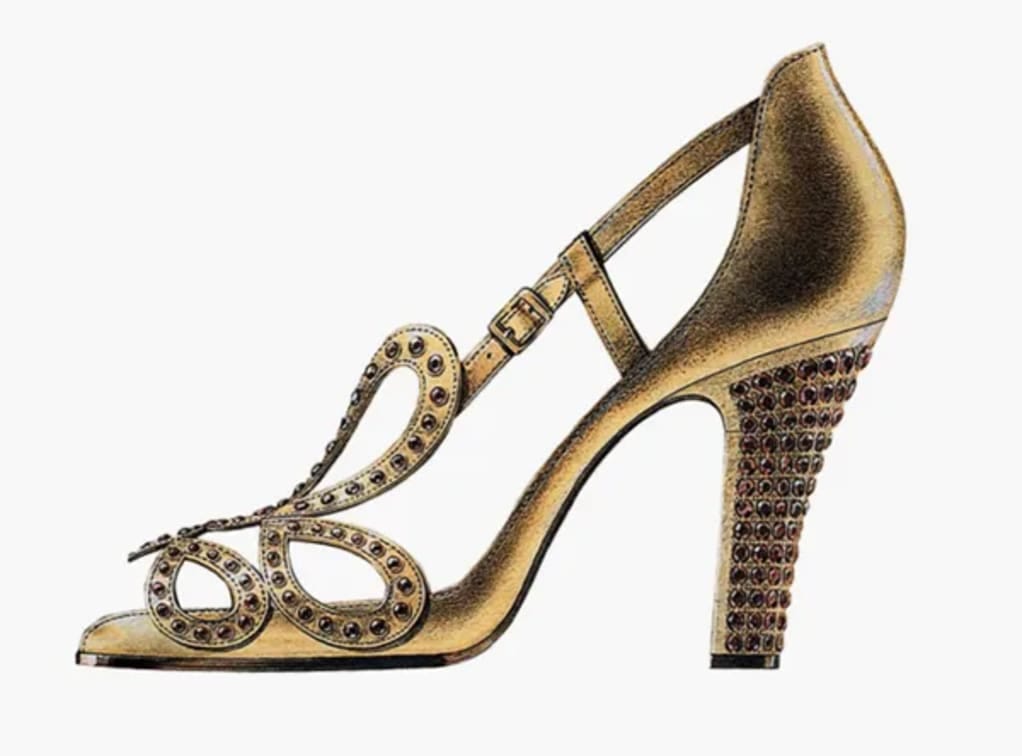
Coronation Regalia
The Queen wore two beautiful crowns on her Coronation Day: The St. Edward’s Crown and the Imperial State Crown. People citing the History of Royal Palace’s website state, “the St. Edward’s Crown is the most important and sacred of all the crowns” and “is only used at the moment of crowning itself. The crown weighs nearly 5 lbs and is encrusted with semi-precious stones. Elizabeth replaced the St. Edward’s Crown with the lighter 3 lb. Imperial State Crown, which is made of gold and features diamonds, sapphires, emeralds, pearls and rubies.
The Sovereign’s Sceptre with Cross, the Sovereign’s Orb and the Coronation Spoon were other symbols of the Kingdom under coronation regalia.
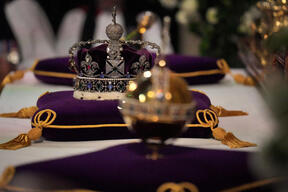
Queen’s Speech
Elizabeth delivered an expressive speech to the millions of people watching her across the globe. Her speech reads, “I have behind me not only the splendid traditions and the annals of more than a thousand years but the living strength and majesty of the Commonwealth and Empire; of societies old and new; of lands and races different in history and origins but all, by God’s Will, united in spirit and in aim. Therefore, I am sure that this, my Coronation, is not the symbol of power and splendour that are gone but a declaration of our hopes for the future, and for the years I may, by God’s Grace and Mercy, be given to reign and serve you as your Queen.”
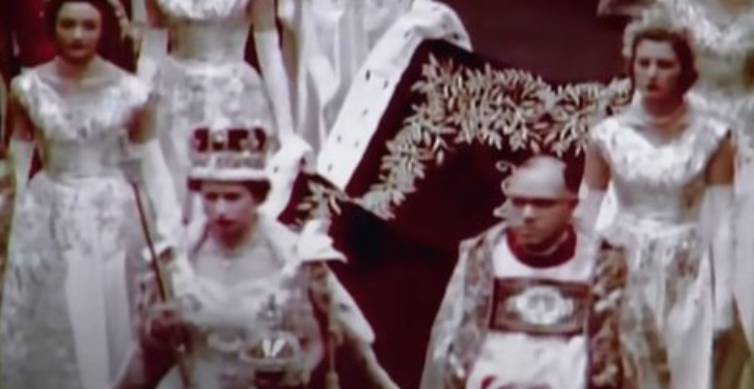
Significance of coronation
The coronation ceremony marks the ritual formality of a royal monarch being crowned as King/Queen. It does not announce their rule’s official beginning but carries great symbolic importance for royals.




